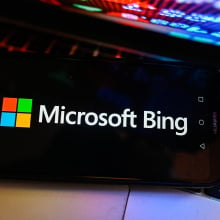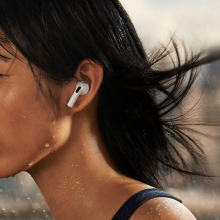The explosion of nonconsensual deepfake imagery online in the past year, particularly of female celebrities, has presented a difficult challenge for search engines. Even if someone isn't looking for that material, searching for certain names can yield a shocking number of links to fake explicit photos and videos of that individual.
Google is trying to tackle that problem with an update to its ranking systems, the company announced in a blog post.
Google product manager Emma Higham wrote in the post that the ranking updates are designed to lower explicit fake content for many searches.
When someone uses terms to seek out nonconsensual deepfakes of specific individuals, the ranking system will attempt to instead provide "high-quality, non-explicit content," such as news articles, when it's available.
"With these changes, people can read about the impact deepfakes are having on society, rather than see pages with actual nonconsensual fake images," Higham wrote.
The ranking updates have already decreased exposure to explicit image results on deepfake searches by 70 percent, according to Higham.
Google is also aiming to downrank explicit deepfake content, though Higham noted that it can be difficult to distinguish between content that is real and consensual, such as an actor's nude scenes, and material generated by artificial intelligence, without an actor's consent.
To help spot deepfake content, Google is now factoring into its ranking whether a site's pages have been removed from Search under the company's policies. Sites with a high volume of removals for fake explicit imagery will now be demoted in Search.
Additionally, Google is updating systems that handle requests for removing nonconsensual deepfakes from Search. The changes should make the request process easier.
When a victim is able to remove deepfakes of themselves from Google Search, the company's systems will aim to filter all related results on similar searches about them, and scan and remove duplicates of that imagery.
Higham acknowledged that there's "more work to do," and that Google would continue developing "new solutions" to help people affected by nonconsensual deepfakes.
Google's announcement comes two months after the White House called on tech companies to stop the spread of explicit deepfake imagery.
Topics Google Social Good

















